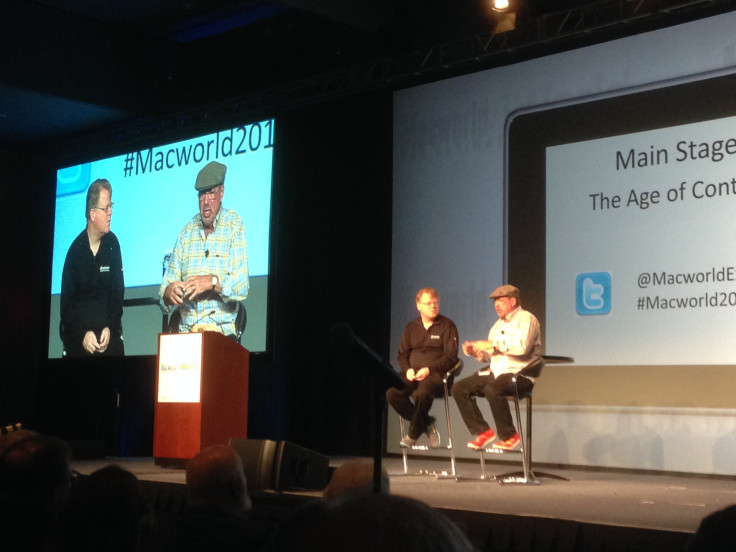Facebook, Twitter and Foursquare Could Help Businesses Usher In 'The Age of Context,' Changing How We Interact With The World

Social media is an almost ubiquitous aspect of daily life in the United States. Smartphones have changed the way that people connect and interact with the world around them. From driving directions to online shopping to reviewing and rating a restaurant, individuals have a stronger voice in the world, and companies are beginning to take notice, ushering in the “Age of Context.” The second day of Macworld 2014 kicked off Friday in San Francisco with Robert Scoble and Shel Israel, authors of the book “The Age of Context,” discussing how social data will be used in the future.
Scoble and Israel began by clarifying the information that businesses are interested in. Social activity, location data and information gathered from sensors and wearable tech will beckon in a new future, they said. In the foreword to their book, Marc Benioff, CEO and founder of Salesforce.com, describes their vision of where the world is headed. Tweets and other social activity will give businesses a better connection with their patrons; hotels will be making reservations at a restaurant for the customer prior to the customer asking or getting baseball tickets ready for the guest upon arrival, all based on information gathered from Twitter, Facebook and other social networks.
Developers have more access to personal information than ever before, and Scoble and Israel believe this is a good thing. “Yes, you will be tracked, but you will also be catered to,” Scoble said. New sensors currently being developed give businesses the opportunity to track shoppers and better customize their stores based on that information. As opposed to giving you turn-by-turn directions on a route you know well, GPS programs will map your frequently traveled routes and help direct you around traffic jams or accidents. This data can help companies build lifetime value from customers.
If a person frequents a coffee shop every morning, tracked information can alert business owners of how important that client is. They can then act on that value, providing the customer with discounts or perks based on his patronage. In this way, the tracked data is beneficial to both the business and the customer. But it’s not all shiny and sweet, noted Scoble. All this information comes at a cost, the cost of privacy.
Israel noted how ominous this could feel to people, calling it the “freaky line.” Privacy and security have become even more a part of daily conversation since Edward Snowden leaked information about the NSA’s surveillance programs. Israel spoke at length about the need to be able to disconnect and turn off data trackers. He jokingly described how the wearable fitness tracker Fitbit might accidentally alert a spouse about infidelity. “Fitbit, turn off tracking!” Israel yelled at his wrist. All jokes aside, his comment shouldn’t be ignored. Developers and business may be getting a new future, but clients may not tolerate going “way over the freaky line,” said Israel.
The biggest impact will be seen in urban areas like New York City, Chicago or San Francisco. “New Urbanists” are already being created. Youth and the middle class are no longer leaving the city for the suburbs, instead they are buying apartments and staying, finding value in the way cities can be connected. Businesses like Über, Seamless and Vintank are creating connections that customers can’t get outside major metropolitan areas.
This isn’t going to happen tomorrow, but will be 10 years down the line. The changes will happen slowly, the pair said. In the way that digital banking has changed the way we spend, social media and wearable tech will change the way we interact with our communities, big and small.
© Copyright IBTimes 2024. All rights reserved.




















